How to launch an AI application in two days?
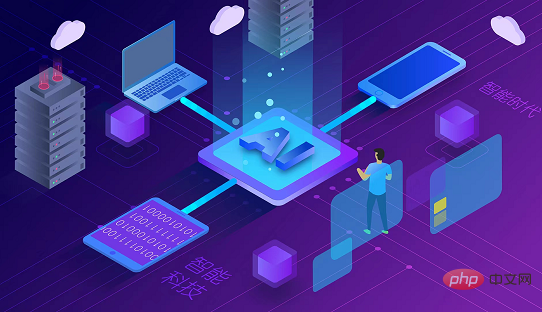
Hello everyone, I am Casson.
In recent months, AIrelated news has continued to grab everyone’s attention. Riding on this wave of popularity, developers from all walks of life are investing in the development of AI applications. For example, IconifyAI[2] developed by 15-year-old developer saviomartin7[1] can generate applications based on text descriptions
. The website earned nearly 1.5k dollars within 5 days of being online.
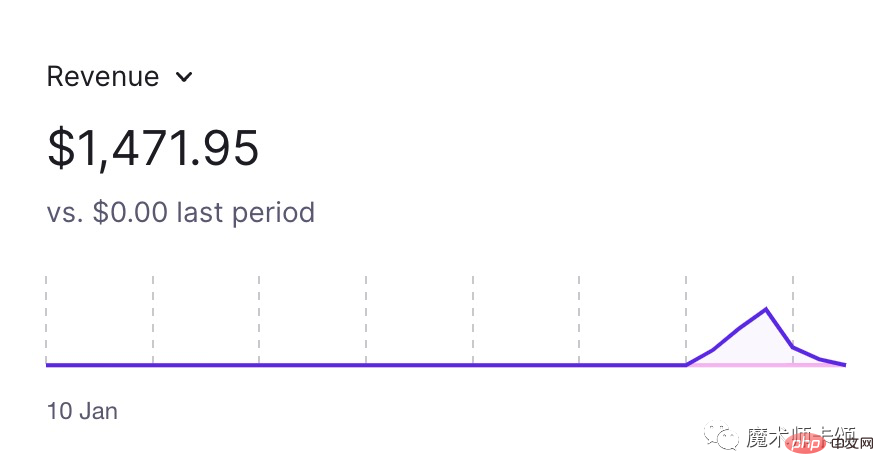 This wave of opportunities is of great benefit to front-end students, because various basic services (such as various storage services, AI services, deployment) have mature solutions. Use it directly, and front-end students only need to focus on the implementation of business logic.
This wave of opportunities is of great benefit to front-end students, because various basic services (such as various storage services, AI services, deployment) have mature solutions. Use it directly, and front-end students only need to focus on the implementation of business logic.
In this article, let us take a look at how a foreign man spent a weekend developing an AI application. Only 40 days after the application was launched, it received 20wUV.
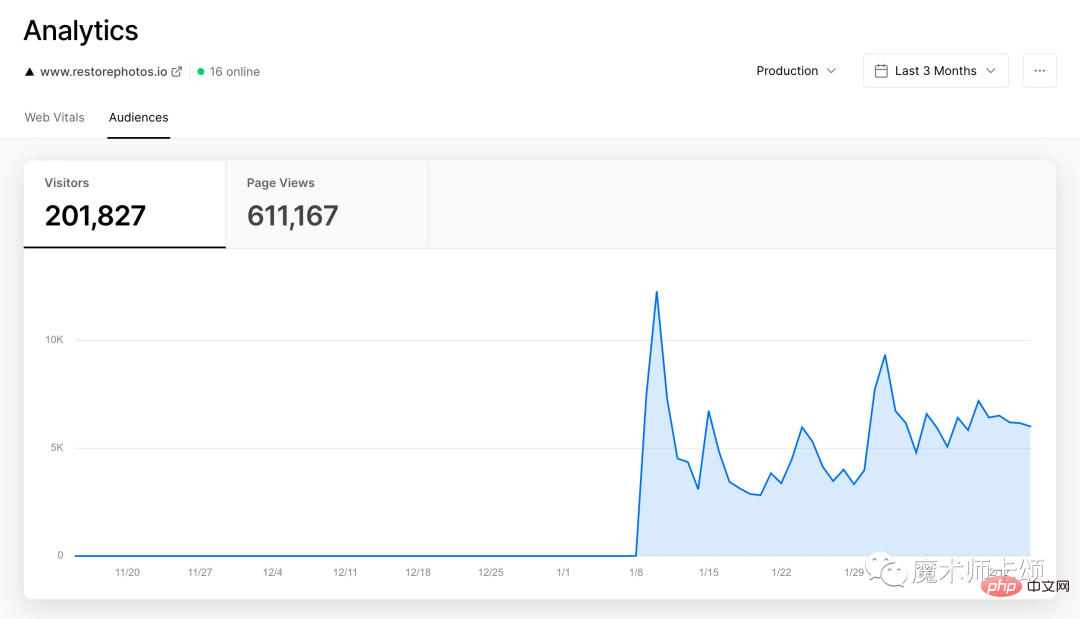 Application Architecture
Application Architecture
First of all, let’s introduce this application. The application is called restorephotos[3]. After the user uploads the blurred old photos,
AIwill repair the photo and return a clearer version. The complete code of the application has been open sourced.
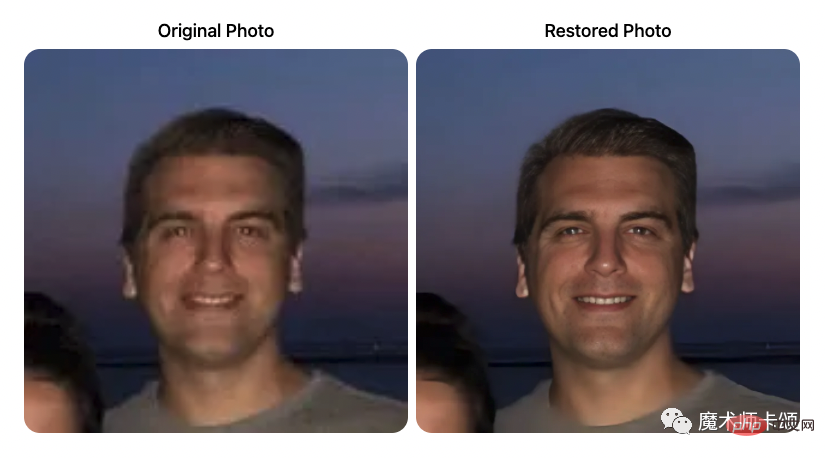 The entire application architecture is divided into 4 parts:
The entire application architecture is divided into 4 parts:
Front end (Next.js)
- Image storage service
- Next.js server
- AI API
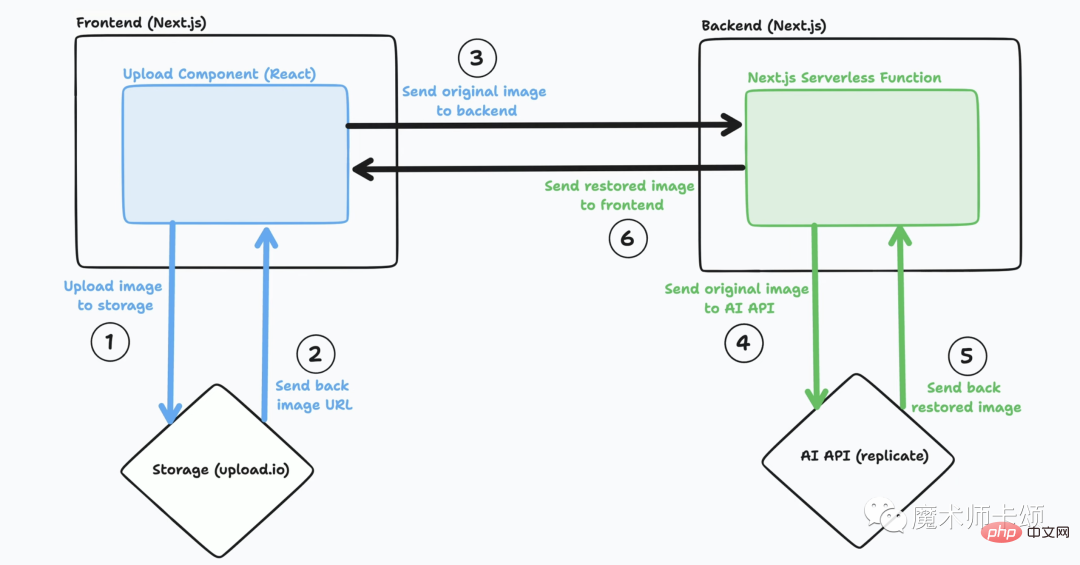 The complete workflow is as follows:
The complete workflow is as follows:
- The front end calls the image storage service and returns the image storage address to the front end
- Front end Send the image storage address to the backend
- The backend calls the AI API to process the image
- AI API returns the processed image to the backend, and the backend returns it to the frontend
- Frontend Show the effect after processing
- Front-end part
The entire front-end and back-end are implemented using Next.js. The front-end mainly includes two parts:
Image upload- AI processed picture display
- All main functions are implemented using open source libraries. Among them, the image upload function is implemented using react-uploader[5]:
1 2 3 4 5 6 7 8 9 |
|
The processed image display effect is implemented using react-compare-slider[6]:

Backend part
The backend core logic includes two parts:
Use Redis to limit the frequency of interface calls.- Redis uses @upstash-redis[7], which is a Redis client based on HTTP. After creating the Redis database online, we can call it on the server through HTTP requests.
- replicate is a machine learning cloud service provider. We can choose different machine learning models according to business needs, such as:
- BROKEN PHOTO REPAIR
- Text to Image
- ...
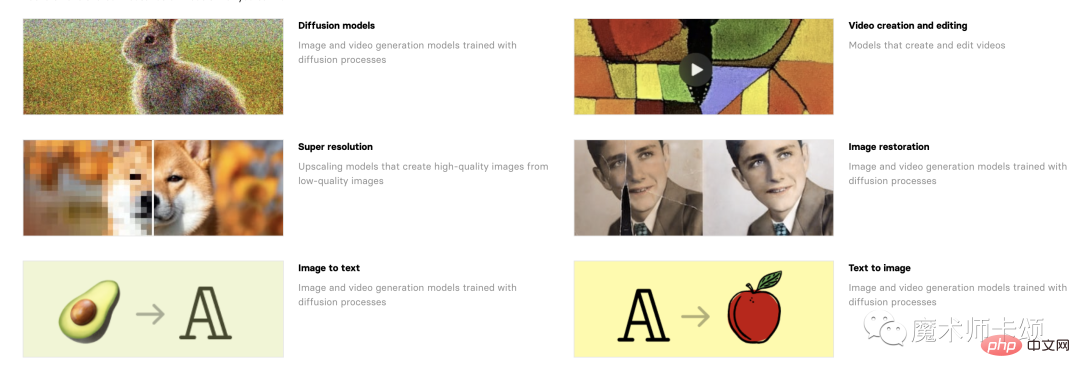 On the Next.js server, we use HTTP Call the model API in the form:
On the Next.js server, we use HTTP Call the model API in the form:
1 2 3 4 5 6 7 8 9 10 11 12 |
|
值得注意的是,模型计算需要时间,所以在服务端,我们每秒轮询一次结果,如果模型返回处理后的How to launch an AI application in two days?,我们就将How to launch an AI application in two days?返回给前端:
1 2 3 4 5 6 7 8 9 10 11 12 13 14 15 16 17 18 19 20 21 |
|
总结
可以发现,所有基础服务均有现成产品可供使用,这极大加快了前端的开发效率,降低了开发成本。
作者运行这个应用的成本是多少呢?其中:
- How to launch an AI application in two days?存储使用的是upload.io[8]提供的存储服务。这里作者使用的是35刀/月的基础付费版本,每月有50GB的上传空间。
- Redis云服务考虑到仅用来做接口调用频率限制,使用免费版就好。
- 整个应用使用Vercel部署,Vercel Pro每月20刀。
- 20wUV的模型API调用费用,大概是900刀。
对于想构建自己的AI应用的朋友,可以参考本文的实现与成本,行动起来吧。
参考资料
[1]saviomartin7:https://twitter.com/saviomartin7
[2]IconifyAI:http://IconifyAI.com
[3]restorephotos:https://www.restorephotos.io/
[4]应用开源代码地址:https://github.com/Nutlope/restorePhotos
[5]react-uploader:https://www.npmjs.com/package/react-uploader
[6]react-compare-slider:https://www.npmjs.com/package/react-compare-slider
[7]@upstash-redis:https://docs.upstash.com/redis/overall/pricing
[8]upload.io:https://upload.io/pricing
The above is the detailed content of How to launch an AI application in two days?. For more information, please follow other related articles on the PHP Chinese website!

Hot AI Tools

Undresser.AI Undress
AI-powered app for creating realistic nude photos

AI Clothes Remover
Online AI tool for removing clothes from photos.

Undress AI Tool
Undress images for free

Clothoff.io
AI clothes remover

Video Face Swap
Swap faces in any video effortlessly with our completely free AI face swap tool!

Hot Article

Hot Tools

Notepad++7.3.1
Easy-to-use and free code editor

SublimeText3 Chinese version
Chinese version, very easy to use

Zend Studio 13.0.1
Powerful PHP integrated development environment

Dreamweaver CS6
Visual web development tools

SublimeText3 Mac version
God-level code editing software (SublimeText3)

Hot Topics
 1387
1387
 52
52
 PHP and Vue: a perfect pairing of front-end development tools
Mar 16, 2024 pm 12:09 PM
PHP and Vue: a perfect pairing of front-end development tools
Mar 16, 2024 pm 12:09 PM
PHP and Vue: a perfect pairing of front-end development tools. In today's era of rapid development of the Internet, front-end development has become increasingly important. As users have higher and higher requirements for the experience of websites and applications, front-end developers need to use more efficient and flexible tools to create responsive and interactive interfaces. As two important technologies in the field of front-end development, PHP and Vue.js can be regarded as perfect tools when paired together. This article will explore the combination of PHP and Vue, as well as detailed code examples to help readers better understand and apply these two
 Questions frequently asked by front-end interviewers
Mar 19, 2024 pm 02:24 PM
Questions frequently asked by front-end interviewers
Mar 19, 2024 pm 02:24 PM
In front-end development interviews, common questions cover a wide range of topics, including HTML/CSS basics, JavaScript basics, frameworks and libraries, project experience, algorithms and data structures, performance optimization, cross-domain requests, front-end engineering, design patterns, and new technologies and trends. . Interviewer questions are designed to assess the candidate's technical skills, project experience, and understanding of industry trends. Therefore, candidates should be fully prepared in these areas to demonstrate their abilities and expertise.
 C# development experience sharing: front-end and back-end collaborative development skills
Nov 23, 2023 am 10:13 AM
C# development experience sharing: front-end and back-end collaborative development skills
Nov 23, 2023 am 10:13 AM
As a C# developer, our development work usually includes front-end and back-end development. As technology develops and the complexity of projects increases, the collaborative development of front-end and back-end has become more and more important and complex. This article will share some front-end and back-end collaborative development techniques to help C# developers complete development work more efficiently. After determining the interface specifications, collaborative development of the front-end and back-end is inseparable from the interaction of API interfaces. To ensure the smooth progress of front-end and back-end collaborative development, the most important thing is to define good interface specifications. Interface specification involves the name of the interface
 Is Django front-end or back-end? check it out!
Jan 19, 2024 am 08:37 AM
Is Django front-end or back-end? check it out!
Jan 19, 2024 am 08:37 AM
Django is a web application framework written in Python that emphasizes rapid development and clean methods. Although Django is a web framework, to answer the question whether Django is a front-end or a back-end, you need to have a deep understanding of the concepts of front-end and back-end. The front end refers to the interface that users directly interact with, and the back end refers to server-side programs. They interact with data through the HTTP protocol. When the front-end and back-end are separated, the front-end and back-end programs can be developed independently to implement business logic and interactive effects respectively, and data exchange.
 Exploring Go language front-end technology: a new vision for front-end development
Mar 28, 2024 pm 01:06 PM
Exploring Go language front-end technology: a new vision for front-end development
Mar 28, 2024 pm 01:06 PM
As a fast and efficient programming language, Go language is widely popular in the field of back-end development. However, few people associate Go language with front-end development. In fact, using Go language for front-end development can not only improve efficiency, but also bring new horizons to developers. This article will explore the possibility of using the Go language for front-end development and provide specific code examples to help readers better understand this area. In traditional front-end development, JavaScript, HTML, and CSS are often used to build user interfaces
 How to implement instant messaging on the front end
Oct 09, 2023 pm 02:47 PM
How to implement instant messaging on the front end
Oct 09, 2023 pm 02:47 PM
Methods for implementing instant messaging include WebSocket, Long Polling, Server-Sent Events, WebRTC, etc. Detailed introduction: 1. WebSocket, which can establish a persistent connection between the client and the server to achieve real-time two-way communication. The front end can use the WebSocket API to create a WebSocket connection and achieve instant messaging by sending and receiving messages; 2. Long Polling, a technology that simulates real-time communication, etc.
 Django: A magical framework that can handle both front-end and back-end development!
Jan 19, 2024 am 08:52 AM
Django: A magical framework that can handle both front-end and back-end development!
Jan 19, 2024 am 08:52 AM
Django: A magical framework that can handle both front-end and back-end development! Django is an efficient and scalable web application framework. It is able to support multiple web development models, including MVC and MTV, and can easily develop high-quality web applications. Django not only supports back-end development, but can also quickly build front-end interfaces and achieve flexible view display through template language. Django combines front-end development and back-end development into a seamless integration, so developers don’t have to specialize in learning
 Combination of Golang and front-end technology: explore how Golang plays a role in the front-end field
Mar 19, 2024 pm 06:15 PM
Combination of Golang and front-end technology: explore how Golang plays a role in the front-end field
Mar 19, 2024 pm 06:15 PM
Combination of Golang and front-end technology: To explore how Golang plays a role in the front-end field, specific code examples are needed. With the rapid development of the Internet and mobile applications, front-end technology has become increasingly important. In this field, Golang, as a powerful back-end programming language, can also play an important role. This article will explore how Golang is combined with front-end technology and demonstrate its potential in the front-end field through specific code examples. The role of Golang in the front-end field is as an efficient, concise and easy-to-learn




